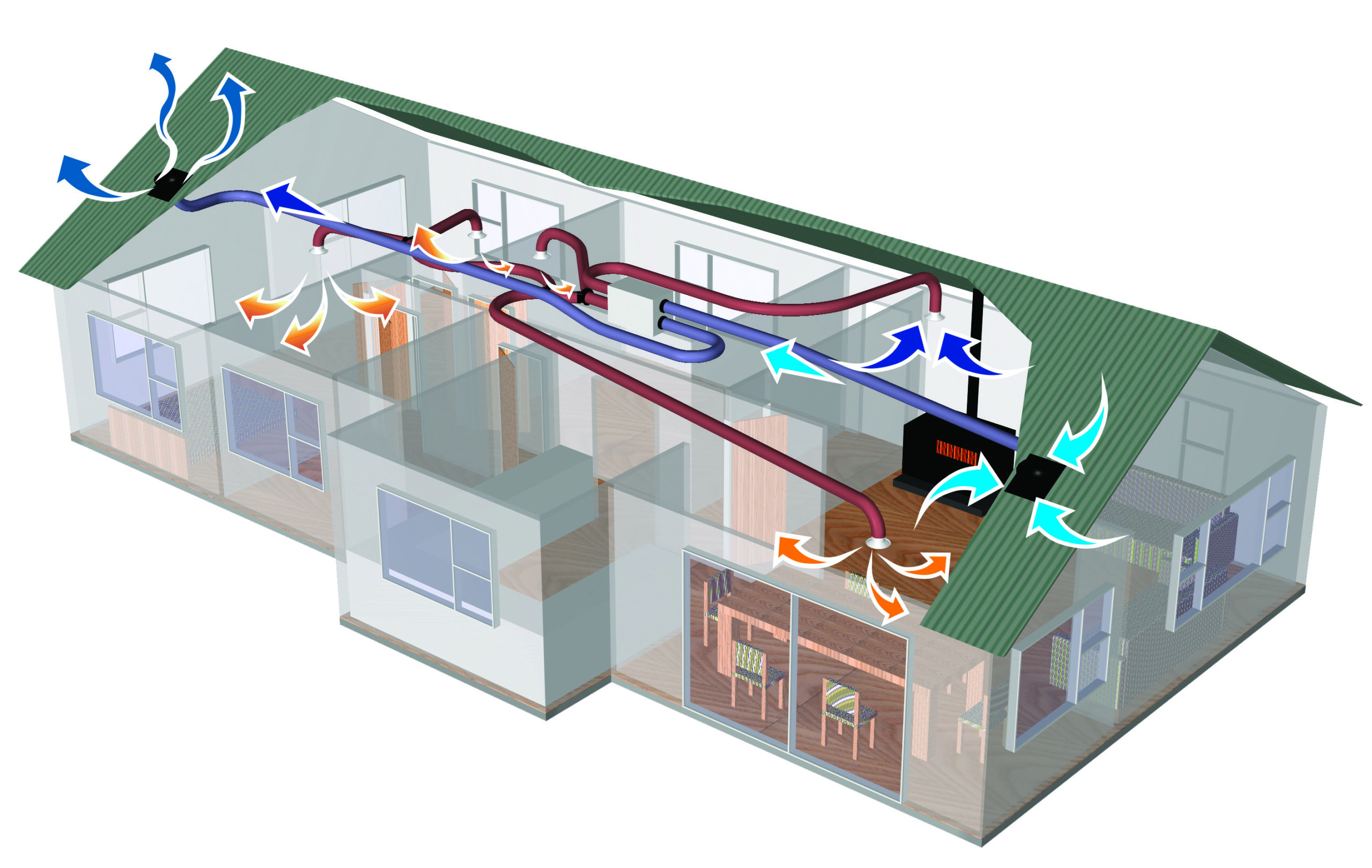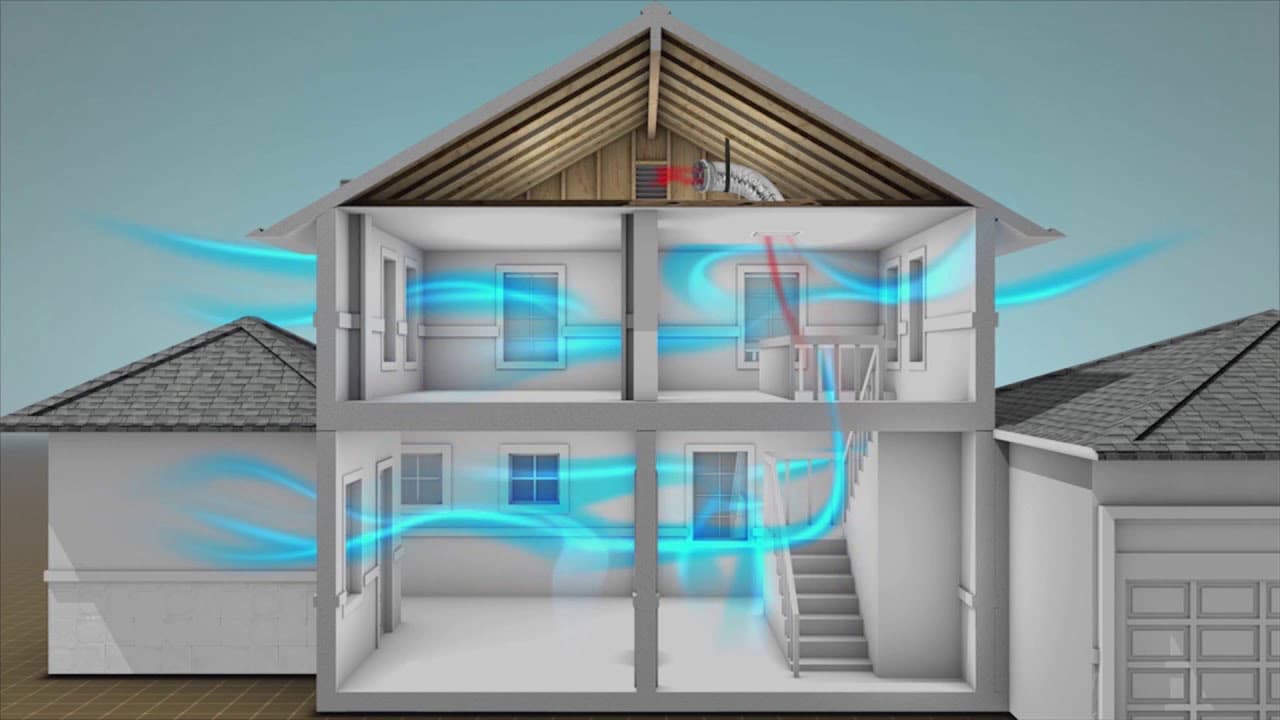Having a comfortable home is one of the most important things in life. We spend so much time indoors, and adequate ventilation is essential for our health and well-being. Poor air quality can cause health issues such as respiratory problems, headaches, and fatigue. In addition, inadequate ventilation can cause a buildup of allergens, moisture, and pollutants, contributing to poor indoor air quality. This blog post will discuss why adequate House Ventilation is key to indoor comfort and provide tips on ensuring your home is properly ventilated.
The Importance of House Ventilation
Many people need to pay more attention to the importance of proper House Ventilation. However, ensuring that your home has adequate ventilation is key to indoor comfort and can have numerous benefits.
One of the primary reasons that ventilation is so important is that it helps ensure that indoor air quality remains healthy. Poor ventilation can cause a buildup of pollutants, such as mold spores, dust, and pet dander, leading to respiratory problems and other health issues. Adequate ventilation helps to remove these pollutants and ensure that the air in your home is fresh and healthy.
Also, proper ventilation can help improve energy efficiency and reduce utility bills. By exchanging stale air with fresh outdoor air, your heating and cooling systems can operate more efficiently, leading to cost savings over time.
Overall, proper Home Ventilation has many benefits, from improved air quality to reduced energy costs. So if you want to ensure that your home is comfortable and healthy, make sure that you invest in a high-quality ventilation system.
Common Issues Caused by Poor Ventilation
Poor ventilation can lead to various problems that can compromise the comfort and health of your home. One of the most common issues caused by poor ventilation is excessive moisture and humidity. Without proper air circulation, moisture can accumulate, creating a breeding ground for mold and mildew. It can cause a musty odor and lead to respiratory issues, such as allergies and asthma.
Another issue is poor air quality due to indoor pollutants like dust, pet dander, and volatile organic compounds (VOCs). These can accumulate in the air, leading to headaches, dizziness, and other health problems.
In addition, poor ventilation can lead to higher energy bills. Without proper airflow, your HVAC system may have to work harder to maintain a comfortable temperature, which can increase energy consumption and costs.
Finally, poor ventilation can cause structural damage to your home. Excessive moisture can lead to rotting and warping of wood, while high humidity levels can damage wallpaper, paint, and other finishes. It’s important to address poor ventilation issues as soon as possible to avoid these problems.
Improved Air Quality and Reduction of Indoor Pollutants
Proper Home Ventilation plays a crucial role in maintaining good indoor air quality. Harmful pollutants can accumulate indoors without adequate ventilation, leading to various health problems. These pollutants include dust, pet dander, mold spores, volatile organic compounds (VOCs), and other airborne particles. When these pollutants are not effectively removed from the air, they can cause allergies, respiratory issues, and even asthma attacks.
A well-ventilated home helps to reduce the concentration of indoor pollutants by continuously exchanging stale indoor air with fresh outdoor air. This exchange helps to dilute the pollutants and remove them from the living space. Additionally, proper ventilation can effectively control odors and prevent the buildup of excess humidity, reducing the risk of mold and mildew growth.
Furthermore, proper ventilation also helps to eliminate formaldehyde, radon, and other hazardous chemicals that may be present in your home. These toxic substances can be emitted from various household products and materials, such as cleaning, carpets, and furniture. By removing these pollutants from the air, ventilation systems contribute to a healthier and safer living environment.
Overall, by investing in a good Home Ventilation system, you can significantly improve the air quality in your home, making it a more comfortable and healthier space for you and your family.
Energy Efficiency and Cost Savings
One major benefit of adequate Home Ventilation is increased energy efficiency and cost savings. When your home is well-ventilated, air circulation improves, allowing for better temperature regulation. It means that your HVAC system doesn’t have to work as hard to heat or cool your home, reducing energy consumption and lowering utility bills.
Also, proper Home Ventilation helps prevent the buildup of moisture and condensation. Excessive moisture in the air can lead to mold and mildew growth, which can cause damage to your home and negatively impact your health. Maintaining a well-ventilated home can prevent these issues, reducing the need for expensive repairs and potential health complications.
Furthermore, good ventilation efficiently removes indoor pollutants, such as volatile organic compounds (VOCs) and allergens. These pollutants can adversely affect your health, especially for individuals with respiratory conditions or allergies. By having a ventilation system in place, you can improve the overall air quality in your home, reducing the risk of respiratory problems and promoting a healthier living environment.
Investing in a good Home Ventilation system enhances indoor comfort and brings significant energy efficiency and cost savings. By improving air circulation, preventing moisture-related issues, and removing indoor pollutants, you can enjoy a more comfortable and healthier living space while saving on energy expenses and potential repair costs.
Different Types of Ventilation Systems
Several types of ventilation systems are available for homeowners, and each system has unique benefits. The first type of ventilation system is natural ventilation, which utilizes windows, doors, and vents to exchange indoor and outdoor air. This type of ventilation system is best suited for homes located in areas with moderate weather conditions.
Another type of ventilation system is mechanical ventilation, which uses fans to circulate air throughout the house. Mechanical ventilation systems can be divided into two categories: exhaust and supply ventilation. Exhaust ventilation systems remove stale indoor air from the home, while supply ventilation systems bring fresh outdoor air.
In addition to these systems, hybrid ventilation systems combine both natural and mechanical ventilation. These systems are designed to take advantage of the natural ventilation in a house while also using fans to provide additional air circulation.
When choosing a ventilation system, it is important to consider factors such as the size of the house, the number of occupants, and the climate in the area. A professional HVAC contractor can help homeowners choose the best ventilation system for their specific needs.
Preventing Mold, Mildew, and Moisture-related Issues
One of the biggest concerns of poor Home Ventilation is the growth of mold, mildew, and other moisture-related issues. When a home lacks proper ventilation, excess moisture becomes trapped indoors, creating a breeding ground for these harmful substances.
Mold and mildew not only damage the structure of your home but can also pose serious health risks to you and your family. They release spores into the air, which can be inhaled and lead to respiratory problems, allergies, and other health issues. Furthermore, the presence of mold and mildew can worsen existing conditions like asthma or bronchitis.
Proper Home Ventilation helps to remove excess moisture and prevent the growth of mold and mildew. Ventilation systems, such as exhaust fans and dehumidifiers, can be installed in areas prone to moisture accumulation, such as bathrooms, kitchens, and basements. These systems work by expelling moist air and bringing in fresh air from the outside.
Additionally, adequate ventilation helps to regulate humidity levels in the home. High humidity levels contribute to mold and mildew growth and can make your living environment uncomfortable. You can enjoy a more pleasant and healthy indoor atmosphere by keeping humidity levels in check.
Health Benefits of Proper House Ventilation
Proper House Ventilation not only ensures comfort but also promotes good health. Poor ventilation can lead to a buildup of pollutants such as dust, mold spores, and other harmful particles, leading to respiratory issues such as asthma, allergies, and other illnesses.
Adequate ventilation improves air quality, creating a healthier living environment for occupants. It can be particularly beneficial for individuals suffering from allergies or other respiratory conditions, as fresh air helps reduce allergens and pollutants.
Good ventilation also helps regulate humidity levels, which can significantly impact health. Excessive humidity can create a breeding ground for mold and mildew, exacerbating respiratory and other health problems. Proper ventilation can help control moisture levels and reduce the risk of mold and mildew growth.
Overall, adequate Home Ventilation is critical for maintaining good indoor air quality, reducing the risk of health problems caused by pollutants, and promoting a healthy living environment. Homeowners can create a comfortable and healthy space for themselves and their families by ensuring proper ventilation.
Conclusion
Proper Home Ventilation is crucial for creating a comfortable, healthy living environment. It not only helps improve indoor air quality and reduce pollutants but also helps prevent issues such as mold and moisture-related damage. Using different types of ventilation systems, homeowners can improve energy efficiency, save money on utility bills, and enhance their overall living experience.
| Other Good Articles to Read |
| Skank Blogs |
| Unreal Blogs |
| Tba Blogs |
| All City Forums |
| Dany Blogs |
| Refuge Blogs |
| The Music Blogs |
| Key Forums |
| The Big Blog Theory |
| Joe Blogs |
| Blogs 4 Me |
| Blogs Emon |



